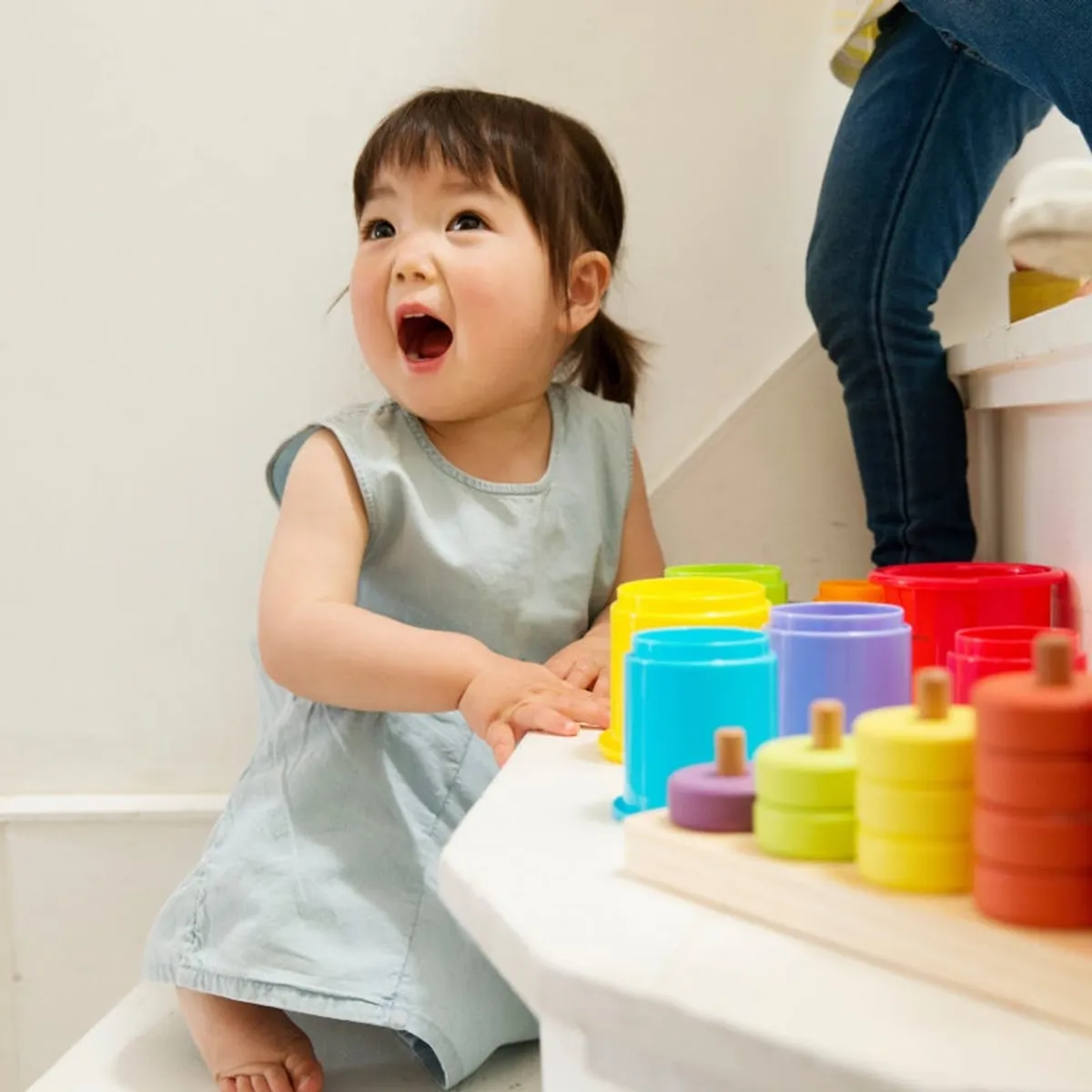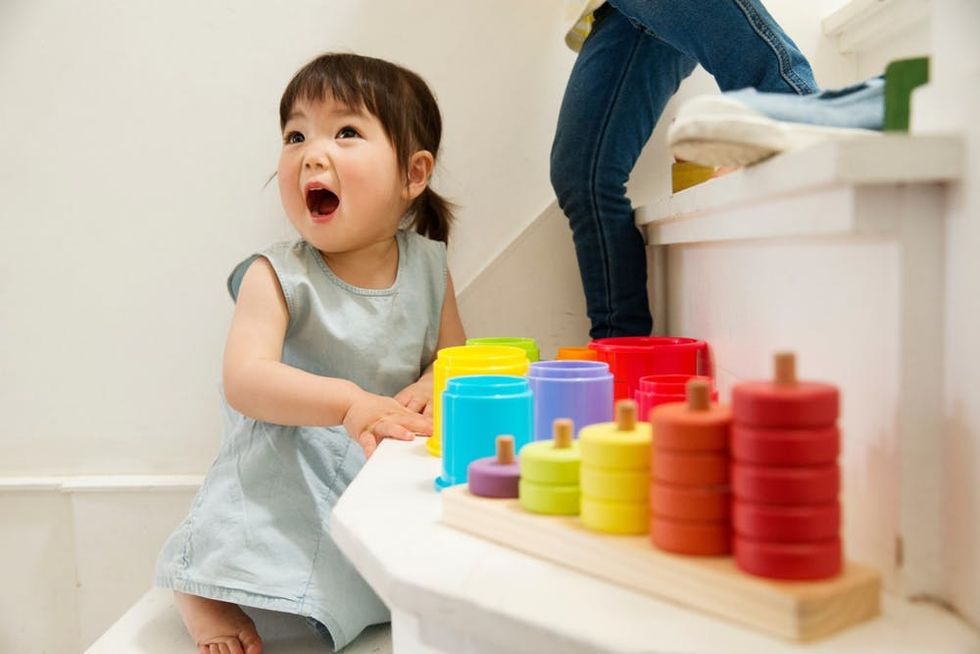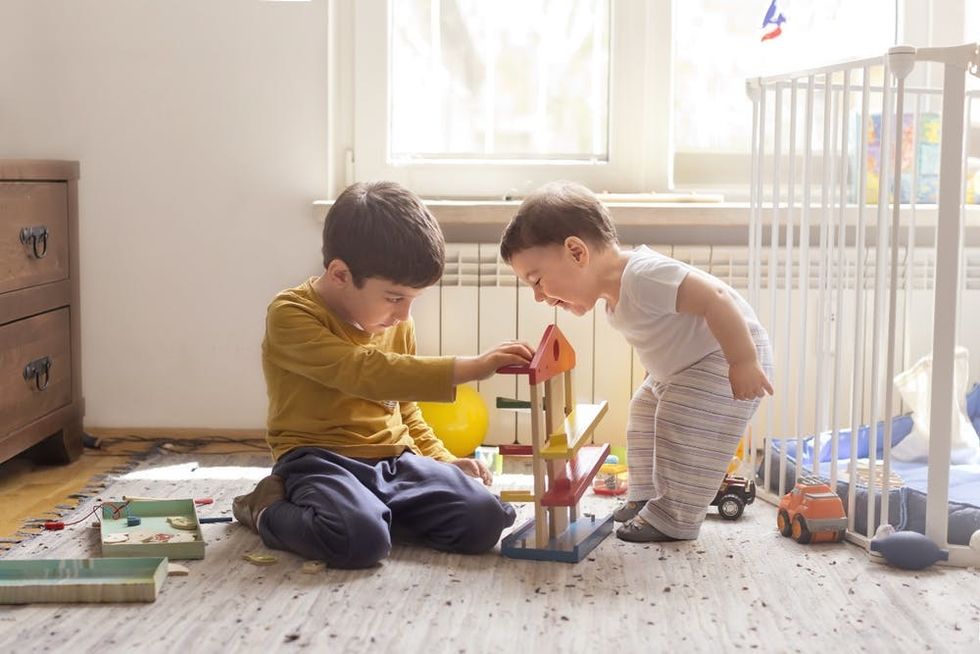Because, unfortunately, they’re not born with manners.
7 Ways to Help Your Toddler Learn Social Skills

Sometimes your kiddo seems more like Tarzan than a toddler, and you’re kind of convinced that they’ll never learn to be polite. Unfortunately, children aren’t born knowing the social graces that we grown-ups have all learned and come to expect and follow. But your tot may just turn out to be a social skills all-star — at least, someday. In the meantime, check out what you can do to move these abilities along.

1. Turn-Taking Basics: Don’t expect your two-year-old to master turn-taking right now. (It probably won’t happen.) But there’s no reason not to start practicing. Waiting until your little one hits pre-K to throw taking turns on them isn’t exactly fair. They’ll feel kind of confused and might even resist the concept of social sharing. When you’re at home, practice taking turns with everyday tasks such as washing your hands (you get a turn at the sink and then your child gets theirs) or drinking from a sippy cup (your child takes a sip as you potentially wait and then you take your turn).
2. Hi and Bye: This is a so, so, so simple social overture that your toddler is totally capable of getting right now. When they walk into a room or a new person comes in (such as a sibling or a family friend), ask your child what they need to say. Hint: The answer is say, “Hi.” Repeat the scene when your child (or someone else) leaves. Of course, this time the answer is, “Bye.” Kids who aren’t totally into talking yet can wave each time.
3. Find Friends: Toddlers aren’t typically developmentally ready to make friends and play together. While your tot may play near their playground pals, they’re not exactly interacting with them. But the lack of social interaction in no way means that your toddler is a loner — they’re just being a normal two-year-old. Even though your child isn’t all about playing with their friends, that doesn’t mean you need to socially isolate them. Being around other kids can prep them for hanging with their buds, when the time comes.

4. Older Role Model: Along with exposing your toddler to other kids their own age, making sure that they’re around older children is helpful. They can watch how their preschool-aged cousin acts and take in what their kindergartner sibling does. This gives them a concrete idea as to how they’re supposed to act. Also, your child might be more likely to follow the actions of another kiddo over what an adult does.
5. Teamwork: Some children are slow to warm up in social situations. Hey, it happens, and it’s really not a problem — at least, not necessarily and not right now. Your child is new to the wide world of social interplay, and they don’t entirely get it. Jumping into a preschool class or a new playgroup is a surprisingly strange situation. Instead of tossing them into the deep end, gradually ease your child into social situations. Try a mom-and-tot class, or hang with them and their playdate friends.
6. Play Too: Sitting back and watching your kiddo play with their toys sure is fun, but it’s not necessarily teaching them much. Get in there and play too! You have a golden opportunity to interact with them (practicing social skills), share (more practicing social skills), take turns (surprise, practicing social skills), and spend some QT together.
7. Patience, Not Pushing: It’s so tempting to force your child into sharing. They grab the fluffy pink unicorn from their “friend’s” jelly-covered little hands, and you rush in with the standard “sharing is caring” attitude. But maybe that’s not such a great idea with a toddler. Your tot is just starting to realize that they’re an independent being, and they’re exercising this independence all the time. Instead of shutting them down, model sharing for them. Let your kiddo come to the concept instead of forcing them to do it. Not just yet, anyway: In a few years, you can expect more from them in this area.
What social skills has your toddler mastered? Tweet us their progress @BritandCo!
(Photos via Getty)


















